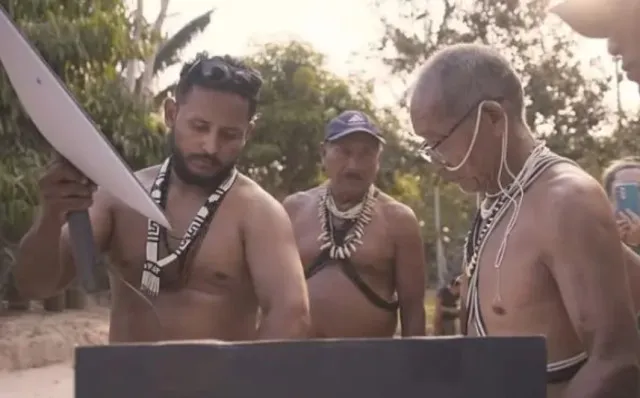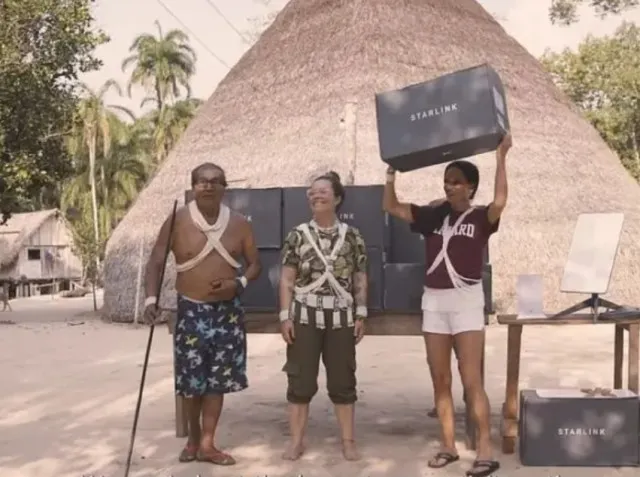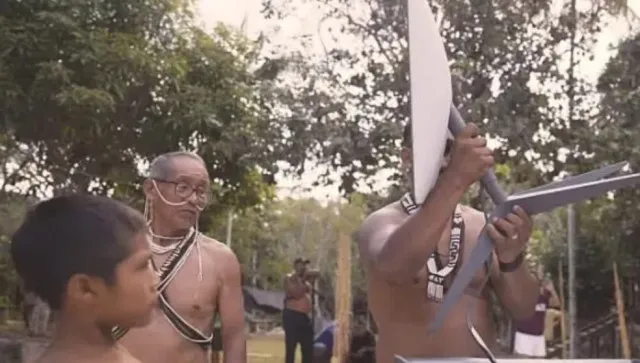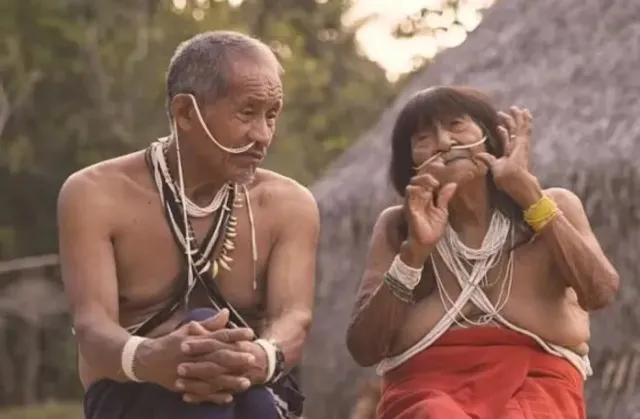A remote Amazon tribe became addicted to social media after getting Elon Musk’s Starlink internet, disrupting their traditional way of life.
Marubo tribe embraces internet access and new opportunities
A remote tribe in the Amazon, known as the Marubo, has recently experienced significant changes after gaining internet access through Elon Musk’s Starlink service.
This connection, established nine months ago, has brought both opportunities and challenges for the 2,000 members living along the Ituí River.
The tribe initially welcomed the arrival of the internet with excitement.

The Marubo tribe, known for their traditional lifestyle, saw the potential for improved communication.
They could reach out for help in emergencies, such as snake bites, and share educational resources with other communities.
For many young members, this new access opened up dreams of traveling and pursuing careers beyond their immediate surroundings.

Remote Amazon tribe gets social media addiction after being given the Internet
However, the joy of connectivity quickly turned into concern.
Elders of the tribe have reported a troubling shift in behavior among the youth.
With access to social media and adult content, many young Marubo have become distracted and less engaged in traditional activities.

Some have started sharing explicit videos in group chats, leading to fears about changing social norms and behaviors within the community.
Tsainama Marubo, a 73-year-old elder, expressed his worries about the influence of the internet.
He noted that young people are becoming lazy and are learning behaviors that stray from their cultural values.
Alfredo Marubo, another tribal member, indicated an increase in aggressive behavior among some of the youth.
He affirmed the change attributed to their exposure to new kinds of content.

Tribal leaders implement internet restrictions to fight addiction
To combat this growing addiction, tribal leaders have implemented restrictions on internet usage.
They now allow access for only two hours each morning and five hours each evening, with no internet on Sundays.
Despite these measures, parents remain anxious about the impact that this sudden exposure to modern technology may have on their children.
Activists who helped connect the tribe to the internet believe that the Marubo deserved this access.
They argue that although the negative effects are concerning, the benefits of communication and education outweigh them.
The Marubo tribe now faces the challenge of balancing their rich cultural heritage with the realities of modern technology.

Social media reactions to the changes in Amazon tribe
Online users have expressed a range of opinions about the situation, suggesting that even a remote tribe like the Marubo can fall into the trap of social media addiction.
Many believe that no one, regardless of their location or background, is immune to the allure of social media.
This indicated a wider concern about the influence of digital platforms.
If they want the net they will be twisted up in it like everyone else. I don’t believe cultural issues caused by the net are “inflated.”
Their elders and parents have every right to limit access to minors, one user said.
Just wait until they start getting calls for an extended car warranty and Medicare benefits, the second user joked.
Consider how much OUR society has changed in the last 30 years or so since smart phones and high-speed internet.
Before social media and the constant “connectivity” we can’t seem to be without for a minute.
I have a good understanding of what these tribal elders are feeling, the third user explained.
We’re suprised by this result? Look at what it’s done to the rest of the world…
we can’t keep doing the same thing over and over and expect a different result; no matter the newest victims, another wrote.
They should collectively disconnect from the internet. They’ll be saving themselves in the long run. Being connected isn’t worth it, someone wrote.